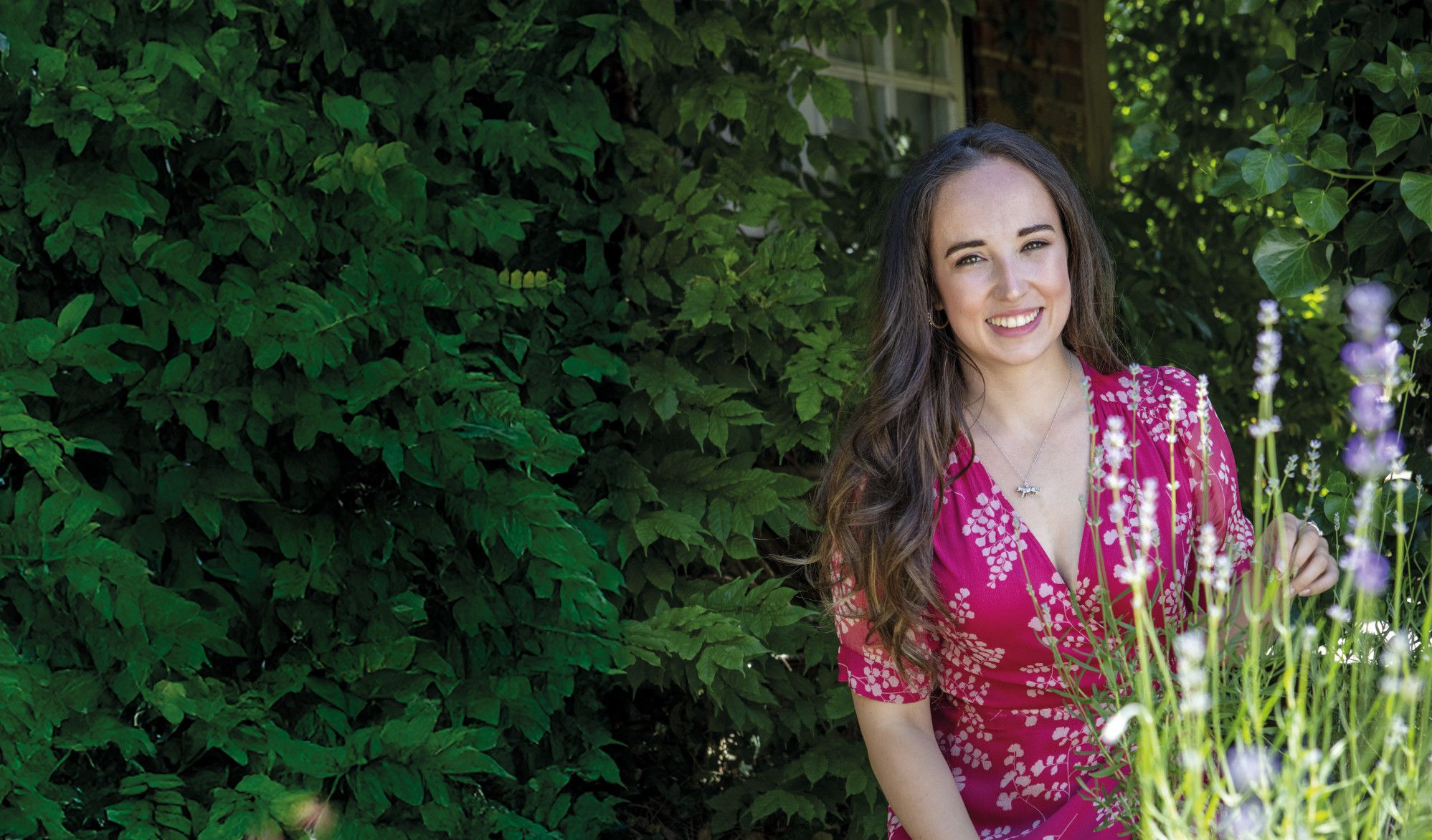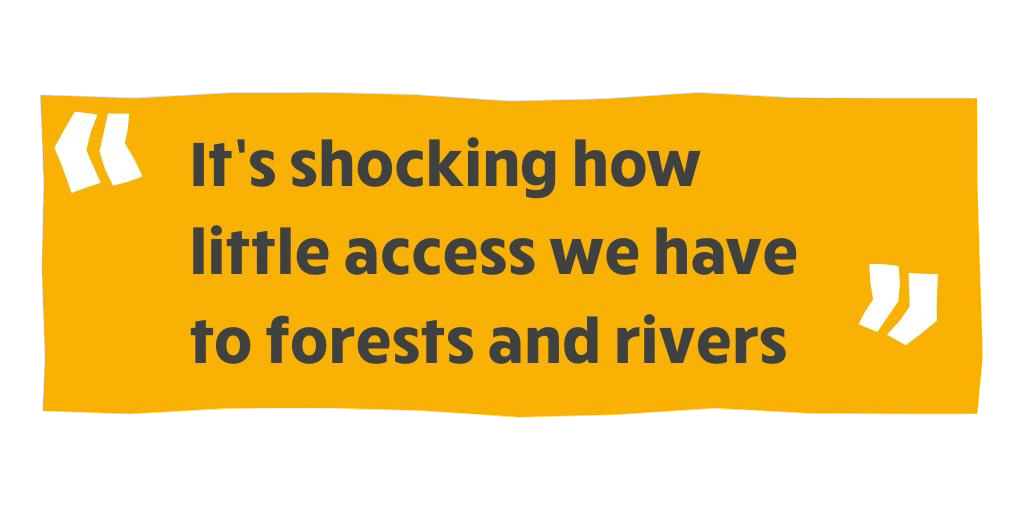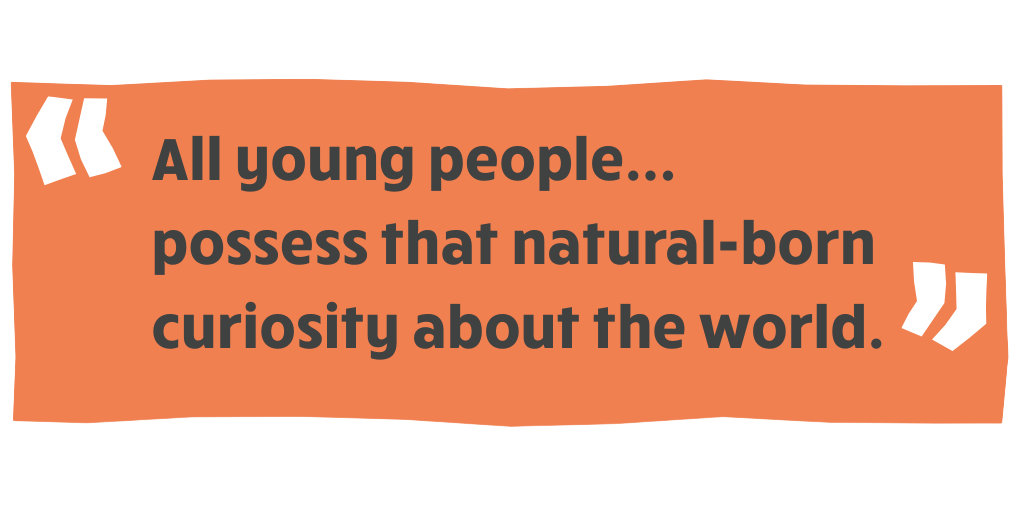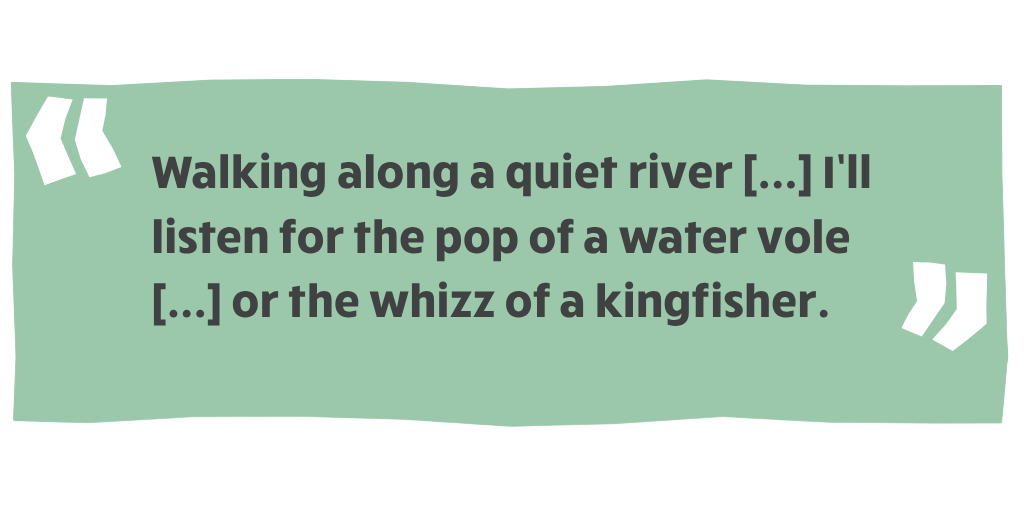Walk & Talk: meet BBC wildlife presenter Megan McCubbin
Who is Megan McCubbin? We chat to the presenter, podcaster and campaigner about her animal encounters and activism

Interview: Rebecca Swirsky
The zoologist, wildlife presenter and conservationist is a familiar face from BBC’s Springwatch, Winterwatch and Animal Park. She chatted to walk, the Ramblers magazine, about her most memorable animal encounters, biggest environmental concerns and tips for getting young people into nature
Working – and walking – with animals
What’s the most touching animal encounter you’ve experienced?
During lockdown, I spent time with an unusually large badger cete of 18 family members (usually they number six or seven). They are very shy creatures. Every evening, I’d put peanuts down, just listening, looking, taking photos. After a few months, they got so used to my scent that they were bumping into my camera. It was incredible. They didn’t care particularly for me; they just wanted the peanuts. But I loved it.
Have you ever been genuinely scared of an animal?
If you know an animal’s behaviour, you’ve no need to be fearful. I’ve been charged at by elephants, had a log thrown at me by a chimp and been nosed by a shark. But I’ve never been fearful, because I knew what these responses meant and what to do in return. Free-diving down to a male nurse shark in the Bahamas, I didn’t realise he was in pursuit of a female, so he swung towards me. I redirected him by patting his nose and pushing him aside, before moving to the surface. He just swam off to continue flirting. Amazingly, sharks can sense electrical signals from us, but as a food source we’re too bony, with no oils or blubber. They’ll only bite if we resemble a seal in our wetsuits. Sharks do need to be respected as an apex predator, but they’re actually docile and lovely. They’ve also been swimming in our oceans far longer than trees have evolved on our land, are evolutionarily perfect, and are essential for the ocean’s health.
Which animal super-skill would you love to have?
I’d adore compound eyes, which lots of insects have. Their brain processing power works differently to ours. They get more information faster than we can, and see colours we don’t have the adaptations to be able to absorb.
What’s the most underrated animal?
Wasps. They have a really bad rep. When summer comes, everyone goes into a big panic in the pub garden. It’s crazy. Many wasps are tiny – we have about 9,000 species in the UK, including parasitic wasps, ruby-tailed wasps and the most common, the yellowjacket wasp. While not as good pollinators as bees, wasps are still important for crops and wildflowers. Only 5% sting. They’re fascinating to watch, and so much more than a striped orange- and black nuisance buzzing in our ice creams. My tip? Put a bit of sugar – a glob of your ice cream, or small spill of beer – somewhere away from you, and they’ll leave you in peace.
Morally, should humans, animals or nature have more right of way?
We are one and the same. You can’t justify one over the other. Land access is important because we protect what we love, and we only love what we see. It’s shocking how little access we have to forests and rivers in England – these places are key for our mental health. But we need to learn how to respect that land. The UK is largely a green desert of agricultural nothingness. So we need less intensive agriculture, more rewilding. This offers job and access opportunities, strengthening diversity while allowing the land to restore and heal. Our land should also be more densely covered to enable fragmented habitats to connect and continue.

Megan’s campaigning with stepdad Chris Packham
Can you tell us about the ‘Funeral for Nature’ you took part in with your stepfather, Chris Packham, last year?
The Bath-based funereal event was an artistic protest and march for loss of biodiversity. We had painted coffins. Many organisations came, and people wore hats with endangered animals on them, created by artists. Mine had a hammerhead shark. There are so many people working with animals, so when an animal becomes functionally extinct everyone feels the losses deeply. Sometimes you don’t understand why the reality isn’t sparking a bigger protest or turning the tide. Some amazing people are doing amazing things, but not at the scale needed.
Who has the capacity to surprise you more, animals or humans?
Animals positively, humans negatively! Humans are shocking in our ability to overlook how important nature is. We move forward, then take two steps back.
Getting young people active into nature and environmental issues
How can parents encourage their children – particularly girls – to be adventurous in the outdoors?
It’s about having the push to get out and go. All young people, whether girls or boys, possess that natural-born curiosity about the world. We must harness, not repress, that. I grew up being allowed to rummage and explore in Netley Abbey [near Southampton] and around the New Forest. Adventuring, maybe getting tangled in brambles, gives children confidence and builds their interest. Girls should definitely be equipped with key knowledge about keeping themselves safe, yet not be made fearful in the process. One shouldn’t be at the cost of the other.

How do we balance informing our children into activism with not overloading them with fear?
We should give more credit to the younger generation. They’re inheriting an incredibly damaged world. Given the chance, they’ll often come up with amazing, impressive solutions. Empower them to know that their voices count and matter. It’s best they can come up with solutions sooner rather than later.
If there was one environmental issue you’d advocate focusing on, what would it be?
Phasing out fossil fuels. It’s a complicated issue tied in with economics, but one we need to tackle globally, not just as a nation, to combat climate change and biodiversity loss. It’s also about rolling out renewable energy in the most ethical, considered way possible – which means not sticking a wind farm just anywhere.
New books and autumn walks - Megan’s next steps
What’s your next project?
I’m severely dyslexic, so my first book was a challenge. It took lots of brain power! But I see my platform as an opportunity to give others their platform. So once again I’m writing – this time working on two books. They’re about calls to action, nature, the environment – all subjects close to my heart.
Where’s your favourite autumnal walk?
In an area called Marchwood in the New Forest, I’m always struck by the reds, browns, yellows and all shades in between. It’s quite a spectacle. The New Forest is also known for its fungi, so I like to see what I can spot (though not eat!).
What's your favourite...
Country walk?
I gravitate to rivers. Walking along a quiet river track , I’ll listen for the pop of a water vole into the water, or the wondrous whizz of a kingfisher.

City walk?
The WWT London Wetland Centre in Barnes is a treat. London’s birdlife biodiversity is amazing – some of the best birding can be done there. I spotted three peregrine falcons in the city centre recently.
View?
I travel so much that it’s hard to pick just one. Currently I’m in Scotland’s Sanna Bay [at the western tip of the Ardnamurchan peninsula], enjoying sand dunes, blue skies, sand martins flying, sunshine in rock pools and the ocean alive with dolphins and whales. Yesterday I spotted a female adder.
Piece of kit?
A good pair of boots. My Berghaus pair need replacing, as they have holes. But once they’re moulded to your feet, they’re hard to let go.
Post-walk tipple?
Oh, gin and tonic, every time!
Watch Megan in Animal Park and Springwatch on BBC iPlayer, and listen to her podcasts Waterlands and The Frog’s Bollocks on your favourite podcast platform.

Walk & talk: Sarah Beeny
The TV property expert, author and entrepreneur on her love of farm-life, family and forest walks, and how connecting with nature helped her through treatment for breast cancer.

My Perfect Day: Shazia Mirza
Whether exploring her spiritual side or connecting inner-city teens to nature, walking has had lifelong benefits for the comedian, writer and former teacher – a star of the BBC series Pilgrimage.

Walk & Talk: Martha Kearney
One of the best-known figures in British broadcasting, Martha Kearney has hosted Newsnight, Woman’s Hour, the Today programme and many more. Last year, she swapped current affairs for the countryside, and now presents This Natural Life and Open Country for BBC Radio 4. She lives with her filmmaker husband in Suffolk